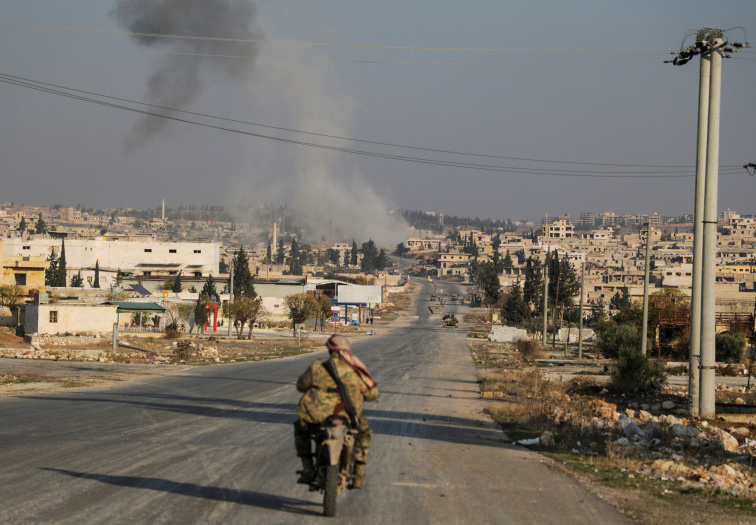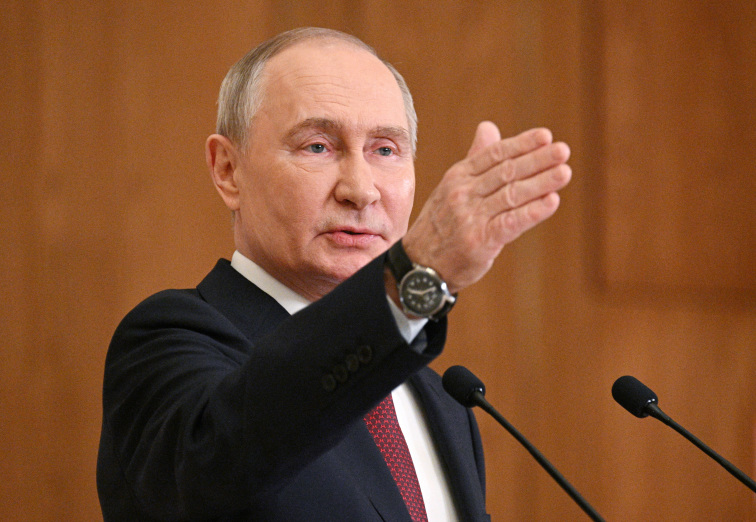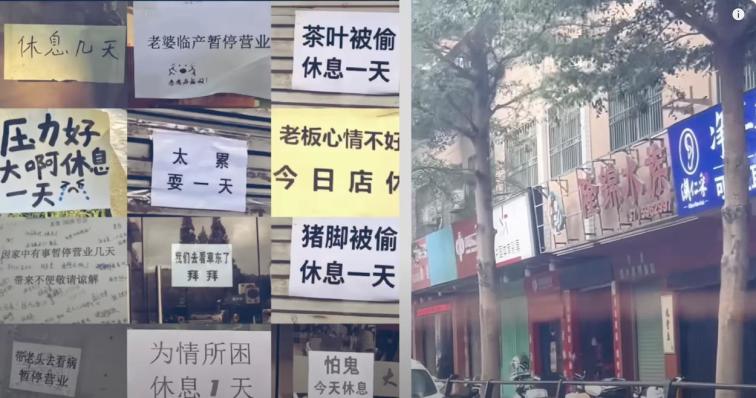Illustrative image: The Hong Kong Central waterfront. (Song Bilong/Dajiyuan)
People News - It’s no longer news that China’s economy is facing significant problems. However, the measures Xi Jinping employs to "rescue" the economy are becoming increasingly baffling, often defying conventional economic understanding. Despite these efforts, both Hong Kong and Chinese stock markets show only brief rebounds before sinking back into declines, while foreign capital continues to flee. This ongoing failure stems from China’s fundamental misunderstanding of Western policies and a lack of genuine recognition of the factors that once drove its economic rise.
Xi Jinping’s “China Dream” – A Pipe Dream
China, both officially and among its people, often uses Japan and the Four Asian Tigers (South Korea, Taiwan, Singapore, and Hong Kong) as benchmarks. These economies rose by exporting large quantities of low-cost goods to Western countries, which is often cited as the path China followed. However, this is only a superficial understanding. A closer look at the later development of the Four Asian Tigers reveals that China’s belief that it can arbitrarily "say no" to the West is nothing more than wishful thinking.
Japan, for example, did indeed export large amounts of low-cost goods to the U.S. after World War II. But during the same period, Japan also made significant strides in education and research, producing Nobel laureates even in the early post-war years. Japan’s first Nobel Prize winner, physicist Hideki Yukawa, was a homegrown scholar who completed his education entirely in Japan, from undergraduate to doctorate. By contrast, China did not produce its first Nobel Prize winner without a Western educational background until 2015, when Tu Youyou won for her discovery of artemisinin as a treatment for malaria. By 2015, however, Japan had already become the country with the most Nobel laureates outside of Europe and North America, with three U.S. Nobel laureates having also completed their full academic training in Japan. This shows that Japan’s ability to transition its economy was not merely due to exporting goods to the U.S. but was underpinned by a solid technical foundation built through education and research since the Meiji Restoration.
Among the Four Asian Tigers, Taiwan and South Korea underwent significant technological and cultural upgrades during their democratization processes. Taiwan is widely recognized as a global leader in semiconductors, while South Korea is a strong competitor in this field. Semiconductor manufacturing requires intensive technological investment and cannot succeed through mere imitation. Furthermore, South Korea has achieved remarkable success in cultural exports. Global hits like Squid Game and Chef & My Fridge showcase the country’s considerable soft power, which only began to flourish after democratization. As for Singapore and Hong Kong, both under common law systems, they developed early into financial hubs. These developments were supported by the commercial and legal frameworks left behind by the British, frameworks that China lacks. China’s rise has largely relied on cheap labor. However, in areas like science, arts, and the rule of law—key elements of soft power—China has made no progress under the Communist Party system. Thus, if relations between China and the West completely break down, China lacks an alternative economic foundation to fall back on. Hong Kong’s economic collapse mirrors this trajectory. China has systematically destroyed Hong Kong’s rule of law and freedoms, stripping it of its core functionality as a financial center. Without the ability to serve as a financial hub, access to cheap labor, or trade relations with the West, Hong Kong’s economic decline into a dead end is entirely predictable.
Core Values Collapse Ends Hong Kong's Role as an International Financial Center
Economic cycles can be addressed through macroeconomic policy tools, but structural economic problems require targeted solutions. It’s akin to treating a cold with over-the-counter medicine versus addressing heart disease or cancer, which demands expert intervention, surgery, or therapies like chemotherapy or targeted treatment, none of which guarantees success. Xi Jinping’s refusal to embrace change and his insistence on using "cold medicine" to address severe systemic issues only exacerbates the situation. The result of avoiding necessary treatments is that the problems worsen daily, rendering any economic rescue efforts increasingly ineffective. The massive exodus of foreign capital is entirely logical. Everyone understands that no one within the CCP has the authority to stop Xi Jinping’s reckless decisions. As foreign capital withdraws at an accelerating pace and Western countries shift their supply chains to other nations, it becomes harder for China to regain its former economic glory. Worse, the country risks entering a prolonged period of instability and decline, potentially lasting over a decade.
A Tyrant Without Checks and Balances Pushes China Into an Abyss
China’s governance system lacks the checks and balances necessary to prevent a tyrant from running amok. Without mechanisms to rein in a misguided ruler, any despot can drive the nation into an abyss. Wise leaders are rare, but it’s all too easy for a tyrant to ascend to power. The repeated failure of Xi Jinping’s economic rescue efforts is not surprising—it is the expected outcome of a flawed system. Consequently, there is no reason to have any hope in so-called economic rescue measures.
(Adapted from Radio Free Asia)











News magazine bootstrap themes!
I like this themes, fast loading and look profesional
Thank you Carlos!
You're welcome!
Please support me with give positive rating!
Yes Sure!